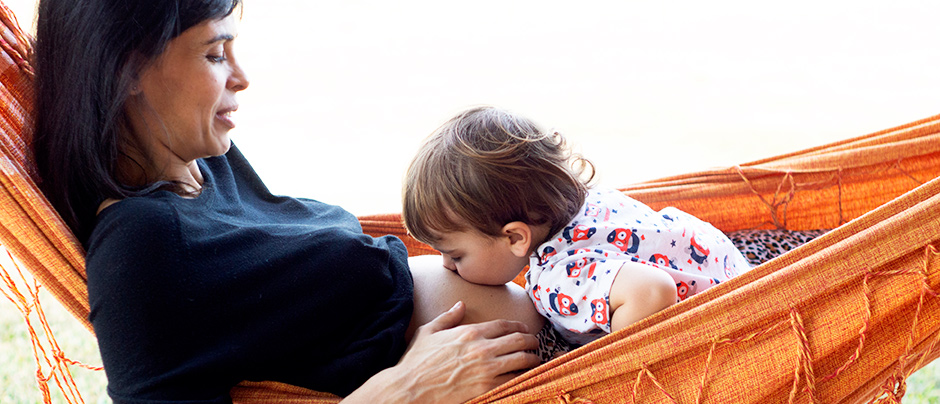Recently, one of my clients who is expecting her second child expressed feelings of sadness and guilt over her pregnancy because she was anticipating the diminished time and attention she would have for her first child, a son.
She and most of the other parents I know with two or more children have experienced these feelings—a normal reaction for both parents. Our first child often recapitulates the experience of our first love. The first child captivates our attention and sense of wonder. We devote a tremendous amount of time to our first children—even when they do not require it. The bond developed is intense, wonderful, and amazing. How could life be any different?
With another baby on the way, we are faced with another major adjustment to our lives … and to the life of our beloved first child. Often, we think of ways to prepare the first child for his or her sibling, but not much about ourselves other than the logistics of juggling two. No one seems to talk about a sense of loss for the time we have had with our first and the ensuing guilt about that sadness and sense of loss. To further intensify the situation, the second child often comes on the heels of increasing frustration with the first child’s expressions of autonomy and will, which often elicit our own otherwise unknown frustrations with the first child and additional guilt about those frustrations!
Know that all of these feelings are very normal and real—and that they will pass. Your second, third, and fourth children will each have their own relationship with you, and vice versa. It will be exceptional in its own way.
Here are some suggestions to help you cope with your feelings and prepare yourself for the addition to your family:
- Guilt is not a useful feeling. Experiencing sadness over the coming changes is normal. You are moving out of a very precious time as a parent and into another phase. Give yourself time to adjust. Do whatever you need to do to process your feelings … write, color, talk with friends or a professional, walk in nature, whatever speaks to your heart and allows you to move through the feelings without repressing them. Down the road, any denial or repression will result in skewed perceptions and reactions to your children.
- A parent’s love is endless, and you have more than enough for other children, even when your older child’s needs feel all-encompassing of your time and attention.
- Talk with other people who have more than one child to normalize your feelings and to be assured that what you are feeling is, in the fact, a common experience.
- Consider ways you can maintain the special bond you have with your eldest child. You already know that you can’t predict how life will be with your next child, so put some things in place now and adapt them, as need be, when the new baby arrives. Maybe you have a special way you cuddle with your child or a special game you play. Sleeping and waking can be intimate times between parent and child. Consider the parts of the bedtime ritual you will continue to do.
- Of all the suggestions to help the older child adjust and accept the new sibling (and there are many wonderful ideas out there), here are a few that are most critical:
- Both parents should have their arms and laps available for the older child when he comes to you the first time after the birth. Have someone else hold the new baby, or have the new baby lying down. In that way, you are completely available to your older child in the manner to which he is accustomed. He will not experience the new child in your arms and in a space he sees as his.
- Use stories to help the child become familiar with the arrival of a sibling. In advance, create simple puppet plays with animals and other play things. Include in these stories feelings you know your child will soon experience: anger, frustration, displacement, and of forth. Tell stories about your experiences missing your special time with him. Remember, it is important to end stories with positive resolutions.
- Be gentle with yourself and dramatically simplify your life. Be sure to get help in any way you can!
While the bonds with our first child have a special, endurable quality, family dynamics change and become more complex. Life, however, is also richer: with hugs and kisses, the trials and joys of two-plus children, what each brings to the other, your journey as a parent, and the texture and substance of your family.

